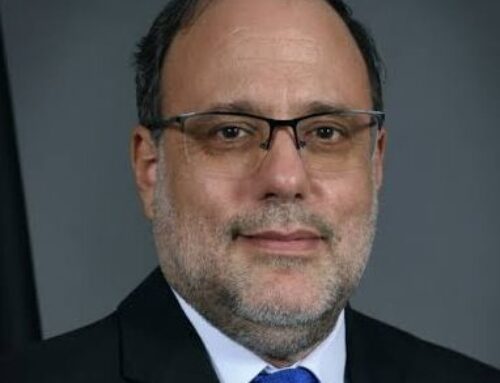
BPOs Booming – Thousands of Jobs Coming!
Despite suffering an initial setback from the COVID-19 pandemic last year, BPO operations are set to boom, with thousands of new jobs on the horizon as they unlock new opportunities.
 CEO of ItelBPO, Yoni Epstein, who was a guest on Taking Stock with Kalilah Reynolds, said the pandemic has created more of an opportunity than a threat.
CEO of ItelBPO, Yoni Epstein, who was a guest on Taking Stock with Kalilah Reynolds, said the pandemic has created more of an opportunity than a threat.
According to Epstein, Itel’s Jamaica operations lost as much as 25% in revenue in April due to the pandemic. Figures were still down some 18% up to June. However, since July, the company has returned to pre-COVID-19 levels, according to the boss, who said 50% of staff are still working from home.
“Some of our clients in the retail and telecommunications space actually grew, so that helped to buffer the loss until we got back to the summer when some of our travel clients started to build back their businesses,” explained Epstein.
Now, the company is readying to open its new 80,000 square foot building in Kingston by May, and plans to hire one thousand workers to fill in. Plans are also on the cards for another similar size building in the corporate area.
Meanwhile, over in St. Lucia, ItelBPO’s operations have grown from 30 employees to 450 last year. It’s planning to add another 300 jobs on that island by the end of March, making it a significant player in St. Lucia’s economy, which currently has about 2000 BPO jobs in total.
Itel’s expansion comes amid news of another fast-growing BPO operation. Ibex recently opened its fifth site in Jamaica in five years, adding 1200 new jobs at its Gtech office site in Portmore.
Remote working
However, stakeholders in the Business Process Outsourcing sector continue to lobby with the Government and the Special Economic Zone Authority for an extension of the regime to keep staff working remotely.
Last March, the Government temporarily waived the requirement for BPO firms to keep the equipment used in their operations at their place of business, to reduce the risk of transmission of COVID-19 among employees.
The waiver facilitated the removal of computers from the Special Economic Zone (SEZ) duty-free to facilitate work-from-home.
Epstein said while a number of BPO staff have returned to work since the initial outbreak, the sector has requested a review of the rules.
“Hour by hour things are changing,” said Epstein, who added that the pandemic has taught a valuable lesson on the role of technology in the growth of many businesses.
Epstein said a suggestion has been made for the guidelines to be adjusted to allow for up to 40% of BPO staff to work remotely, barring there are no emergencies that may require the Government to increase that number. At the same time he said, provisions are also being discussed to protect the real estate economy.
“We’ve said, let’s put a provision to say we have to maintain a facility to manage 80% of our workforce so we don’t hurt the rental industry,” said Epstein.
In addition to bringing in computers tax and duty free under the special economic zone regime, BPO firms also get benefits on income tax. Epstein said these are the main reasons stakeholders want an overhaul of the guidelines.
“So because we are still providing the jobs, we still want to maintain those fiscal benefits [even as staff work from home] because if we can’t, Jamaica will become uncompetitive to the other countries providing these services and therefore Jamaica would lose out of that pile,” reasoned Epstein.
Virtual SEZ
Epstein said the discussions are also aimed at creating a virtual economic zone in which the SEZ Authority ties the special licence to the company instead of a physical location.
“So each time you add a new physical location, you should add it to your license but it doesn’t mean the license is for that specific location, it should be for the company because the company is liable for any breach to the act,” said Epstein.
He reasoned that the reluctance to quickly change the law stems from certain trade laws implemented by the World Trade Organization (WTO) and the Organization for Economic Co-operation and Development (OECD).
“It [SEZ) was always built for a predefined space and not in the virtual world. That is the biggest hiccup,” said Epstein.
“We just need to get together and work together on this. There must be somewhere in the middle we can meet in the national interest to keep business and economy going in a time like this,” he added.
-END-
Ask The Analysts
The Cast David Rose Business Writer, Observer Leovaughni Dillion Investment Research & Sovereign Risk Analyst at JMMB Group
R.A. Williams to list on JSE
The Cast Audley Reid CEO R.A. Williams Distributors Julian Morrison Founder, Wealth Watch JA










Leave A Comment